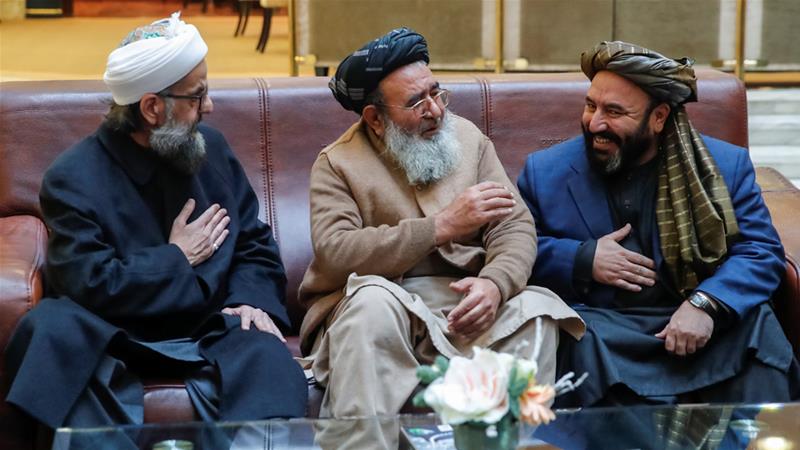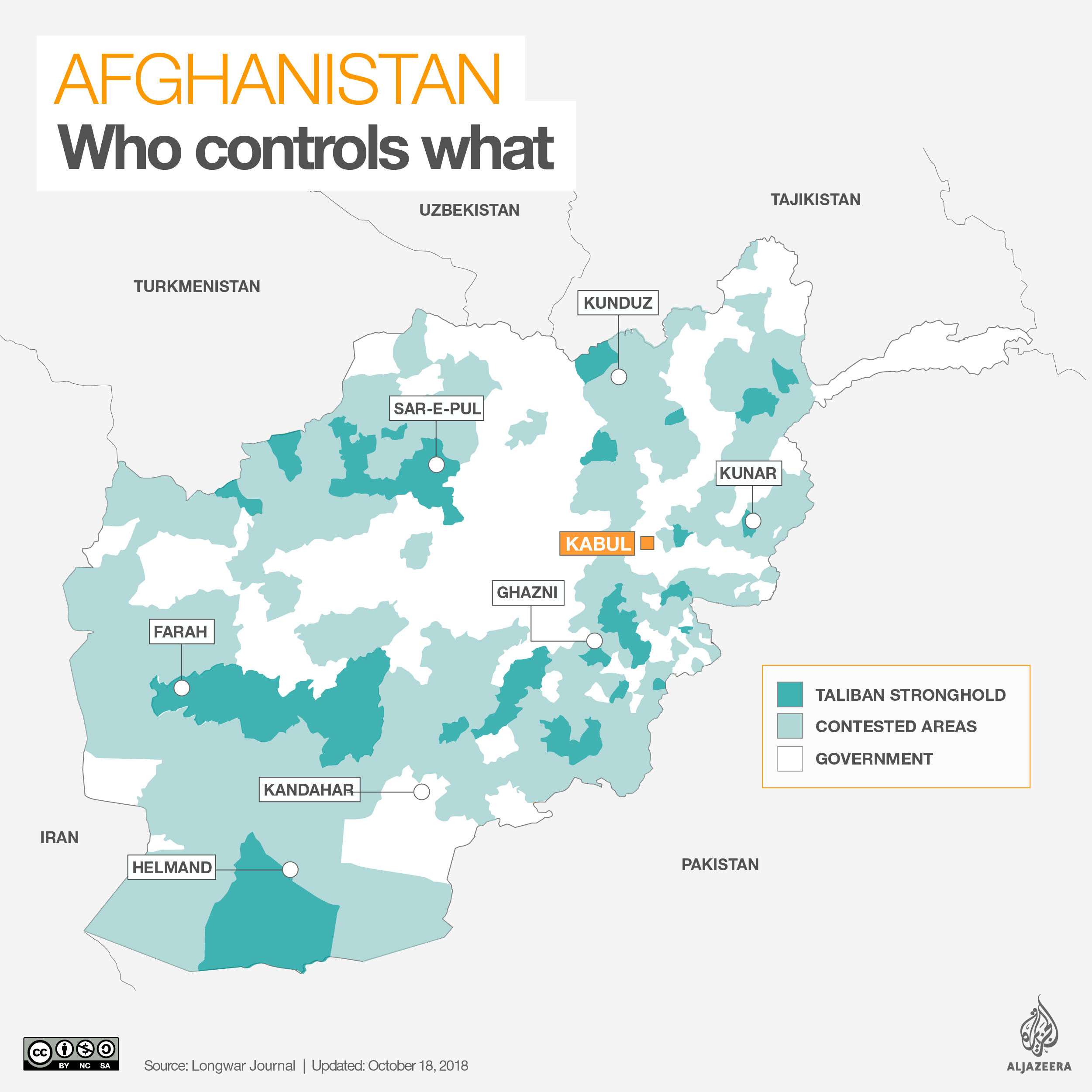 A top Russian diplomat has met with Taliban representatives and expressed Moscow's support for the US withdrawal from Afghanistan.
A top Russian diplomat has met with Taliban representatives and expressed Moscow's support for the US withdrawal from Afghanistan.The meeting came after two days of talks between prominent Afghan figures and Taliban representatives in Moscow and contradictory statements about an immediate US forces pullout from the country.

A senior Taliban official said on Wednesday the United States promised to withdraw half of its troops from Afghanistan by the end of April, but later retracted the assertion.
The head of the Taliban delegation said no time had been fixed for a US withdrawal from the country and negotiations were in progress.
In recent days, I’ve heard some individual Taliban officials claim we have a troop withdrawal timetable for Afghanistan. Today, they correctly retracted that claim. To be clear: no troop withdrawal timetable exists.
Zamir Kabulovm, the Russian presidential envoy on Afghanistan, told the RIA Novosti news agency on Thursday that Russia is willing to help talks between the US and the Taliban on the withdrawal of US troops.
It wasn't clear what assistance the Russians would offer.
Kabulov also said Moscow would be willing to support lifting sanctions on the Taliban as long as other UN Security Council members were also on board.
Until now, the US has been at the forefront of negotiations. Since being appointed last September as the US special representative for Afghan reconciliation, Khalilzad has carried out a number of rounds of talks with the Taliban and other regional representatives in Afghanistan, Pakistan, the United Arab Emirates, India, Russia, Uzbekistan, Turkmenistan, Saudi Arabia, and Qatar.
Mixed feelings in Afghanistan over US-Taliban talks
The US envoy's most recent talks were in Doha late last month where the two sides met for six days.
Khalilzad told the New York Times that a draft framework was agreed that could eventually turn into an agreement.
"Meetings here were more productive than they have been in the past. We made significant progress on vital issues," he wrote on Twitter.
Washington wants assurances that Afghanistan will not harbour groups that would use the country as a base to launch attacks on the US.
The Taliban want all American troops to withdraw.
In December, there were numerous reports that US President Donald Trump planned to halve the estimated 14,000 US forces in Afghanistan.
In his State of the Union address on Tuesday, Trump said any troop pullout would be linked to progress in peace talks.
The Taliban has refused to negotiate directly with Afghan President Ashraf Ghani's government, calling it a "puppet" of the West.
Fears a deal with the Taliban will affect Afghan women's rights
No government representatives have been included in any talks with the Taliban, in Moscow, Doha or elsewhere.
'Fruitful' meeting
A top US general said Kabul must be involved in talks if the push for a peace deal is to be successful.
"Ultimately, we need to get to a Taliban-Afghanistan discussion," General Joseph Votel, head of US Central Command, told US legislators.
"Only they will be able to resolve the key issues involved in the dispute."
A number of Ghani's political opponents took part in the two days of meetings in Moscow, including his former national security adviser Hanif Atmar, who plans to run for the presidency in elections scheduled for July.
The head of the Taliban delegation in Moscow, Sher Mohammad Abbas Stanikzai, called the meeting "fruitful".
"It was very successful. We agreed on many points and I am hopeful that in future we can succeed further, and finally we can reach a solution, we can find a complete peace in Afghanistan," Stanikzai said.
Former Afghan president Hamid Karzai called the discussions "very satisfactory".
Ghani said he had spoken late on Tuesday with US Secretary of State Mike Pompeo who stressed the importance of "ensuring the centrality of the Afghan government in the peace process".
The Afghan president has vented frustration at being sidelined as his political enemies shared prayers and meals with the Taliban while discussing the future of the country.
The Moscow conference was the Taliban's most significant engagement with Afghan representatives in recent memory.
